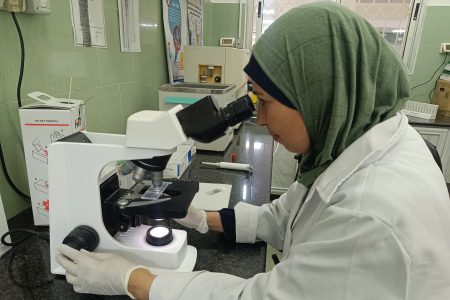The reduction of international aid by major global powers, particularly the United States and European nations, paints a grim picture for global health and development. A recent international study has revealed a staggering potential consequence: over 22 million preventable deaths by 2030. This alarming figure underscores the critical role of foreign assistance in maintaining global stability and wellbeing. The study demonstrates that cuts to المساعدات الخارجية (foreign aid) are not merely economic adjustments, but have life-and-death implications for vulnerable populations worldwide.
تداعيات خطيرة لخفض المساعدات الخارجية (Serious Implications of Reduced Foreign Aid)
The study, initially focused on the impact of former U.S. President Donald Trump’s policies, has now broadened its scope to encompass reductions in aid from the United Kingdom, France, and Germany, alongside the United States. This expanded assessment reveals a substantially more dire forecast than previously estimated. The initial study projected 14 million preventable deaths as a direct result of the Trump administration’s planned cuts, particularly the dismantling of the USAID (الوكالة الأمريكية للتنمية الدولية). However, the concurrent curtailment of aid by key European nations has exponentially increased the predicted death toll.
Gonzalo Fanjul, a researcher at ISGlobal (معهد برشلونة للصحة العالمية), highlighted the unprecedented nature of this situation. “This is the first time in 30 years that France, Germany, the United Kingdom, and the United States have reduced their aid simultaneously,” he stated. While individual European contributions are smaller than those of the US, their collective reduction creates a devastating impact on the global aid system.
الأسباب الكامنة وراء الخفض والبرامج المتأثرة (Reasons for the Reduction and Affected Programs)
The decision to slash المساعدات الخارجية stems from a confluence of factors. In the US, the reasoning presented by figures like former Secretary of State Marco Rubio centered around the perception that aid wasn’t serving American interests, citing votes against the US in international organizations. Rubio also controversially dismissed concerns about potential deaths, attributing criticism to a “complex” of NGOs unduly benefiting from the aid stream.
However, the situation extends beyond U.S. policy. The UK, France, and Germany are grappling with domestic financial constraints and a prioritization of increased defense spending following the invasion of Ukraine. While some might argue for domestic prioritization, this study clearly shows a direct correlation between reduced aid and increased mortality rates globally. This impacts vital programs focused on combating infectious diseases like HIV/AIDS, malaria, and tuberculosis – areas where international aid has historically demonstrated significant success in saving lives. The study emphasizes the importance of sustained investment in these areas.
تقديرات الوفيات: سيناريوهات متفائلة ومتشائمة (Mortality Estimates: Optimistic and Pessimistic Scenarios)
The study presents two scenarios regarding the future of المساعدات الخارجية. The more pessimistic scenario, based on substantial budget cuts, forecasts an additional 22.6 million preventable deaths by 2030. Tragically, 5.4 million of these deaths are projected to occur among children under the age of five. Even a more moderate decrease in foreign aid could lead to an extra 9.4 million fatalities.
These figures are not simply projections; they are based on historical data demonstrating the concrete impact of aid programs on reducing mortality. The data illustrates a clear, measurable link between assistance efforts and the prevention of loss of life, particularly in areas of disease control and healthcare access. The study underscores that while long-term goals involve enabling countries to become self-sufficient, abruptly withdrawing support is profoundly damaging.
تأثير التخفيضات على التعاون الدولي (The Impact of Cuts on International Cooperation)
Beyond the direct loss of life, the researchers emphasized that the cuts represent a serious blow to decades of international collaboration and carefully constructed public health policies. The study isn’t merely concerned with the amount of aid, but also the disruption to established systems and the erosion of trust between donor and recipient nations. The abrupt termination of programs, coupled with the increased instability, hinders long-term development efforts.
Fanjul noted that while the ultimate goal is for countries to reduce their reliance on international support, “the problem lies in the speed and harshness of this process.” The scale of the reductions necessitates a more gradual and carefully managed transition, rather than a precipitous withdrawal.
دعوة إلى العمل: إعادة النظر في الأولويات (Call to Action: Reconsidering Priorities)
The research, funded by the Rockefeller Foundation and the Spanish Ministry of Research, serves as a stark warning to the global community. The data clearly illustrates that المساعدات الخارجية aren’t simply charitable contributions; they are vital investments in global health security and sustainable development. The potential for 22.6 million preventable deaths demands a serious reconsideration of current policies.
The findings call on policymakers to recognize the devastating consequences of prioritizing short-term economic gains over long-term human welfare. Failing to acknowledge the intrinsic link between global health and stability will ultimately have repercussions for all nations. This study isn’t only an academic exercise; it’s a moral imperative to protect the most vulnerable populations and ensure a healthier, more equitable future for all, and demands a swift and decisive change in approach. It’s time to prioritize compassion and collaboration, recognizing that investing in global wellbeing is an investment in our collective future.
Secondary keywords used: الوكالة الأمريكية للتنمية الدولية (USAID), معهد برشلونة للصحة العالمية (ISGlobal), التعاون الدولي.

















